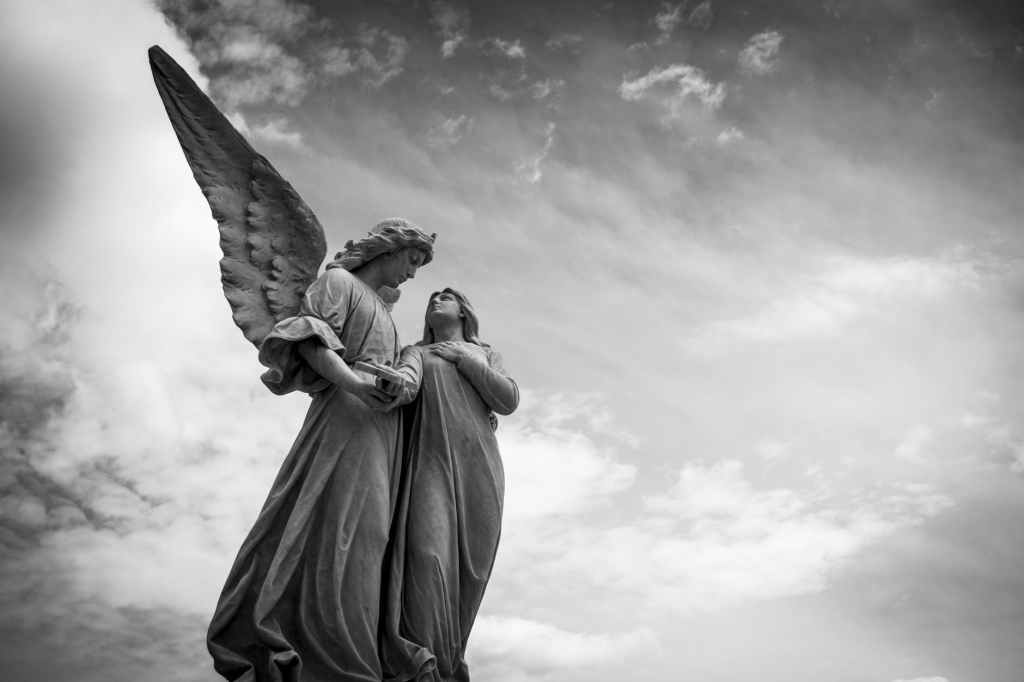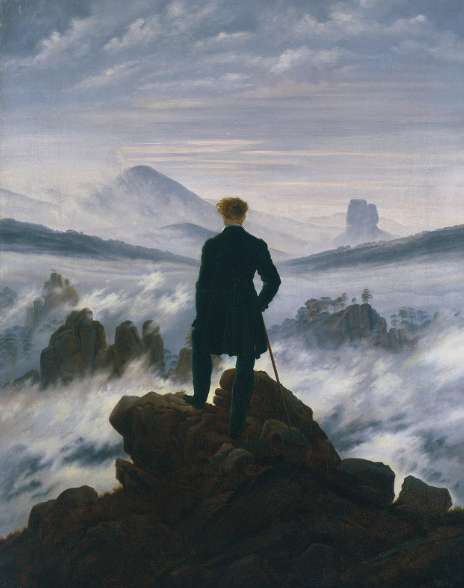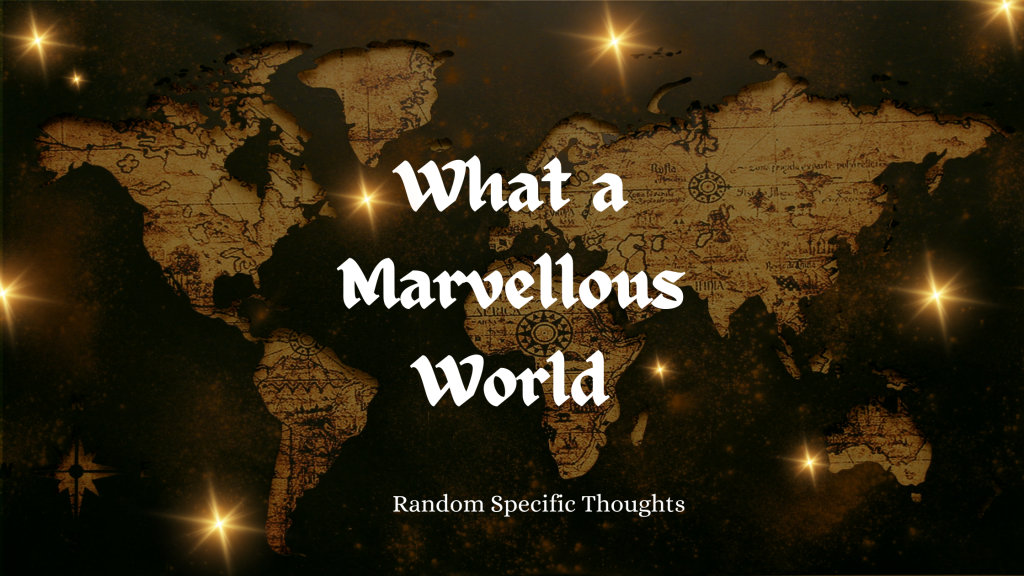
Source: Google
In a world where progress is constantly being redefined, morality and ethics are questioned; there is one aspect of the human experience that has remained firmly rooted in man’s conscience, occasionally swaying but never faltering – religion.
I have developed a general appreciation for the numerous religions people practice worldwide and have grown rather interested in how the very idea of religion as ‘a social-cultural system of designated behaviours and practices, morals, beliefs, worldviews, texts, sanctified places, prophecies, ethics, or organizations, that relates humanity to supernatural, transcendental, and spiritual elements‘ was birthed. {Wikipedia}

Origin
While the origin of religion is uncertain, there are a number of theories regarding its origins. The earliest archaeological evidence of religious ideas dates back several hundred thousand years to the Middle and Lower Paleolithic periods, where apparent intentional burials are considered evidence by archaeologists.
Various theories regarding the origin of religion, most notably those by theorists Edward Burnett Tylor (1832-1917) and Herbert Spencer revolving around animism (the belief that objects, places, and creatures all possess a distinct spiritual essence), and archaeologist John Lubbock (1834-1913) who brought in fetishism (attribution of inherent value, or powers, to an object) have all been widely criticised, rendering religion’s origin yet to be discovered.

Source: Wikipedia
The history of religion refers to the written record of human religious feelings, thoughts, and ideas. It is a period of religious history that began with the invention of writing about 5,220 years ago.
Wikipedia quotes anthropologists John Monaghan and Peter Just on why religions could have begun – “Many of the great world religions appear to have begun as revitalization movements of some sort, as the vision of a charismatic prophet fires the imaginations of people seeking a more comprehensive answer to their problems than they feel is provided by everyday beliefs.”
In ‘The Human Web: A Bird’s-Eye View of World History‘, John Robert McNeill mentions the following as a potential argument as to why religion arose – “religious congregations, in turn, helped to stabilize urban society by making its inherent inequality and insecurity more tolerable.”
As of today, there are 10,000 distinct religions worldwide with 84% of the world population associated with one/several religions. Several large-scale belief systems emerged between 1200 BCE and 700 CE.
{Abrahamic and Indian religions’ source – Wikipedia}
| Religion | Origin |
|---|---|
| ABRAHAMIC RELIGIONS: | |
| Judaism | 2000 BCE |
| Christianity | 1st century AD |
| Islam | 7th century AD (the youngest of the major world religions) |
| INDIAN RELIGIONS: | |
| Hinduism | 2300 BCE (world’s oldest religion) |
| Jainism | 7th–5th century BCE |
| Buddhism | late 6th century BCE |
| Sikhism | AD 1500 |
| Confucianism | Confucius, founder of Confucianism, was born in 551 BCE with the earliest Confucian writing, Shu Ching, incorporating ideas of harmony and heaven sometime in 600–500 BCE |
| Zoroastrianism | 600 BCE (world’s first monotheistic faith) |
| Taoism | 550 BCE |

Source: Wikipedia
Evolution
(The following text is paraphrased from various essays on BBC Future)
In order to gain a better understanding of how and why religion evolved, evolutionary psychologist Robin Dunbar emphasises examining religions without their cultural accretions. He further states that instead of focussing on Gods and creeds, we need to think deeper about the capacities that emerged in our ancient ancestors that allowed them to achieve a religious way of being together.
Dunbar goes on to mention that the largest group size that chimpanzees can maintain through grooming alone is 45. However, the average human group size is 150, known as Dunbar’s number. In justification, Dunbar says humans have the capacity to reach three times as many social contacts as chimps for a given amount of social effort. This in turn potentially portrays that religion emerges out of this increased capacity for sociality. Yet another argument Dunbar proposes is that religion evolved as a way of allowing many people at once to take part in endorphin-triggering activation.

With the neocortex figuring prominently in several theories regarding the evolution of religion, Jonathan Turner, author of The Emergence and Evolution of Religion, mentions the more important alterations as concerning the subcortical parts of the brain, which enabled hominins (extinct members of the human lineage) to experience a broader range of emotions which led to bonding – a crucial achievement for the development of religion.
Voltaire, when asked why we need a religion answered, ”If God did not exist, it would be necessary to invent him.” This answer seemingly implied his belief that God is necessary for society to function. The broad idea that a shared faith serves the needs of a society is known as the functionalist view of religion. One recurring theme is social cohesion: religion brings together a community, who might then form a hunting party, raise a temple or support a political party. {BBC Future}

Source: Wikipedia
According to German-Swiss philosopher Karl Jaspers (1883-1969), “the spiritual foundations of humanity were laid simultaneously and independently… And these are the foundations upon which humanity still subsists today.” The axial age, a term coined by him, refers to the period from 900 to 200 BCE.
From Wikipedia, ”Intellectual historian Peter Watson has summarized the axial age as the foundation time of many of humanity’s most influential philosophical traditions, including, Platonism in Greece, Buddhism and Jainism in India, and Confucianism and Taoism in China.”
Development
The development of religion has taken versatile paths in different cultures with some religions placing emphasis on belief, practice, the subjective experience of the religious individual or the activities of the religious community. Parallelly existing alongside religions that claim to be universal, are others that are intended to be practised only by a closely defined or localized group.
Several medieval religious movements emphasized mysticism (popularly known as becoming one with God or the Absolute) such as the Cathars, the Jews in Spain, the Bhakti movement in India and Sufism in Islam. Christianity expanded to Africa, America, Australia and the Philippines as a result of European colonisation during the 15th – 19th centuries.
The concept of “religion” was formed in the 16th and 17th centuries. The sacred histories and narratives of religions aim mostly, to give meaning to life. Traditionally, faith, in addition to reason, has been considered a source and basis of religious beliefs.

The 19th century considered the formative period for the modern study of religion, saw a dramatic increase in knowledge about a wide variety of cultures and religions, and also the establishment of economic and social histories of progress. By the late 20th century religion had declined in most of Europe.
[Paraphrasing from an essay on BBC Future]
Andrew Newberg, who studies the brain in light of religious experience, says in How God Changes Your Brain, that contemplating God long enough, produces certain reactions in the brain involving activation and deactivation of synapses, formation of new dendrites and synaptic connections along with a change of neural functioning. In short, perceptions are altered accompanied by a change in beliefs. If God has meaning for you, then God becomes neurologically real.

The late sociologist Robert Bellah mentioned, how the religious rituals of Neolithic humans (10,000–4,500 BCE) focused above all on one person, the divine or quasi-divine king, where only a few people, priests or members of the royal lineage, participated. It was also during this period that “king and god emerged together and continued their close association throughout history”.
{BBC Future}
To conclude, what does the future hold?
While the origin of religion remains veiled by the vast expanse of life we’re still discovering, religion continues to heavily influence our lives and provide a basis for how many discern right from wrong. As such, religion like every other aspect of human life continues to grow and expand its reach with several new religious movements having been founded in recent years. But is religion growing, evolving or does it follow a finite path which ends at some point? Zoroastrianism, one of the world’s oldest continuously practised religions is today, a fading religion.
Linda Woodhead, an academic specialising in the sociology of religion, mentions political support is what paves the path for the rise or fall of a religion based on history. In Homo Deus, Yuval Noah Harari argues that the foundations of modern civilisation are eroding in the face of an emergent religion called “dataism”, which holds that by giving ourselves over to information flows, we can transcend our earthly concerns and ties.
{Source: BBC Future}
According to the future statistics modelled by The Pew Research Center based on demographics, migration and conversion, people unaffiliated with any religion will increase in countries such as the United States and France but will constitute a declining share of the world’s total population. Instead of a sharp decline in religiosity (religious orientations and involvement), the projections predict a modest increase in believers, from 84% today to 87% of the world’s population in 2050. Excluding Buddhism, all of the world’s major religions are predicted to grow in absolute numbers in the coming decades. However, these projections cannot be considered absolute when factoring in the potential consequences of international migration.
{Source: Pew Research Centre}

The past houses the fractional percentage constituting human error while the future remains uncertain owing to the unpredictability of life. But analysing what little we have been able to learn, religion is a unique aspect of the human experience that has grown and evolved in its own path supported by life and based on the cerebral capacity of our ancestors and it sure has been interesting to learn the course of it all!
Hope you had a lovely read!
Thoughtfully yours,
D

Referred sources:
BBC Future:
How and Why Did Religion Evolve?
Do humans have A Religious Instinct?
Tomorrow’s Gods: What is the future of religion?
Wikipedia:
Timeline of Religion
Religion
History of Religion
Britannica:
History Of The Study Of Religion
Pew Research Centre:
The Future of World Religions: Population Growth Projections, 2010-2050
Khan Academy:
The Origin of World Religions






Leave a comment